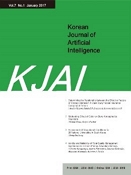- 권한신청
- E-ISSN2508-7894
- KCI
Prediction of Cervical Cancer Risk from Taking Hormone Contraceptivese
김경아(KYUNG-A KIM) (을지대학교)
정명애(Myung-Ae CHUNG) (을지대학교(성남캠퍼스) 의료지능정보연구센터)
강민수(Min Soo KANG) (을지대학교)
Abstract
In this study, research was conducted to predict the probability of cervical cancer occurrence associated with the use of hormonal contraceptives. Cervical cancer is influenced by various environmental factors; however, the human papillomavirus (HPV) is detected in 99% of cases, making it the primary attributed cause. Additionally, although cervical cancer ranks 10th in overall female cancer incidence, it is nearly 100% preventable among known cancers. Early-stage cervical cancer typically presents no symptoms but can be detected early through regular screening. Therefore, routine tests, including cytology, should be conducted annually, as early detection significantly improves the chances of successful treatment. Thus, we employed artificial intelligence technology to forecast the likelihood of developing cervical cancer. We utilized the logistic regression algorithm, a predictive model, through Microsoft Azure. The classification model yielded an accuracy of 80.8%, a precision of 80.2%, a recall rate of 99.0%, and an F1 score of 88.6%. These results indicate that the use of hormonal contraceptives is associated with an increased risk of cervical cancer. Further development of the artificial intelligence program, as studied here, holds promise for reducing mortality rates attributable to cervical cancer.
- keywords
- Microsoft Azure, cervical cancer, Hormonal Contraceptives, machine learning, Logistic Regression
- 다운로드 수
- 조회수
- 0KCI 피인용수
- 0WOS 피인용수















